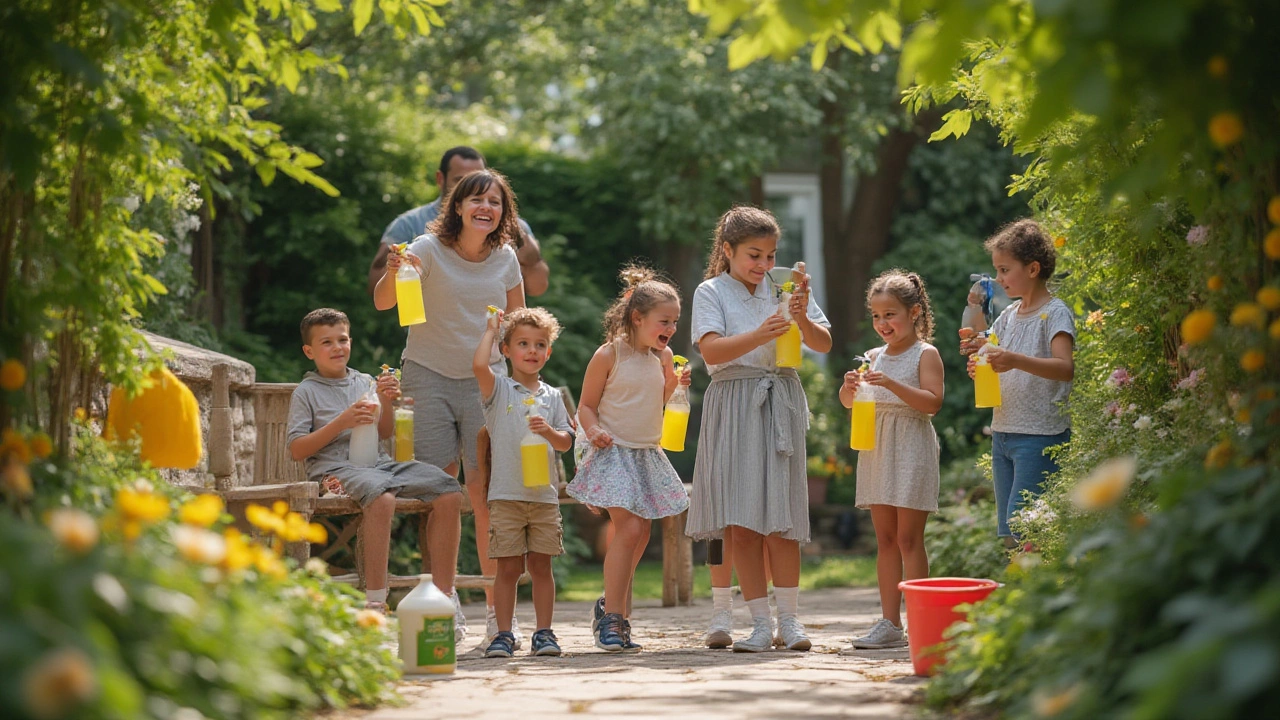Eco-Friendly Outdoor Cleaner: Green Tips for a Spotless Yard and Home Exterior
Want a sparkling patio or clean windows without choking your family with chemicals? You’re not alone. More people are swapping bleach and synthetic soaps for plant‑based alternatives that work just as well on outdoor surfaces. Below you’ll find practical ways to keep your garden furniture, decking, siding and outdoor glass looking fresh while staying kind to the planet.
DIY Recipes You Can Mix at Home
First off, you don’t need to hunt for pricey specialty brands. A few kitchen staples do the trick. Mix one part white vinegar with four parts water, add a teaspoon of liquid castile soap, and you’ve got a multi‑surface spray that cuts grime on decks, metal railings and glass. For stubborn moss on stone steps, sprinkle baking soda, let it sit five minutes, then scrub with a brush and rinse. The mild abrasiveness lifts algae without eroding the stone.
If you have a lot of mildew on siding, combine three tablespoons of hydrogen peroxide with a cup of water and a splash of lemon juice. Spray on the affected area, wait ten minutes, then hose it off. The peroxide oxidizes the mold spores, while lemon adds a fresh scent. All ingredients are cheap, biodegradable, and safe around pets.
Choosing the Right Commercial Green Cleaner
When you prefer a ready‑made product, look for a few key signs. First, the label should list natural surfactants like coco‑glucoside or saponin instead of sulfates. Second, check for certifications such as Eco‑Label or the UK’s ‘Green’ trademark – they guarantee low toxicity and minimal environmental impact. Third, avoid anything that lists “phosphate” or “triclosan” – those chemicals can harm waterways.
One popular choice among UK homeowners is a plant‑based concentrate that you dilute with water for all outdoor jobs. It’s effective on greasy BBQ grills, patio furniture, and even car wheels. Because you only mix what you need, you waste less product and the bottle lasts longer, keeping costs down.
Pressure washing is another go‑to for large surfaces, but you can make it greener too. Fill the washer’s tank with the vinegar‑castile mix instead of commercial degreaser. The low‑pressure setting works fine on wood decks, while a higher pressure clears cement driveways. Just remember to protect nearby plants with a tarp – even natural cleaners can stress delicate foliage if they sit too long.
For glass, a simple mix of distilled water, a drop of dish soap (look for a label that says ‘plant‑based’), and a splash of rubbing alcohol gives you a streak‑free shine. Use a microfiber cloth; it traps dust and reduces the number of passes you need, saving water and time.
Finally, don’t forget maintenance. A regular sweep or blower removes loose debris that would otherwise turn into stubborn stains. When you clean after each season, you avoid the heavy‑duty scrubbing sessions that often require harsher chemicals.
Switching to eco‑friendly outdoor cleaners isn’t just good for the planet – it also protects your family’s health and can save you money in the long run. Whether you blend your own vinegar spray or pick a certified green concentrate, the results are clear: clean surfaces, fresh air, and a greener backyard.

The Best Eco-Friendly Outdoor Cleaner: Safe, Effective Options for UK Gardens and Patios
Discover the most effective eco-friendly outdoor cleaners for UK gardens & patios, with tips, facts, and DIY natural solutions to keep your spaces fresh and green.
Read More